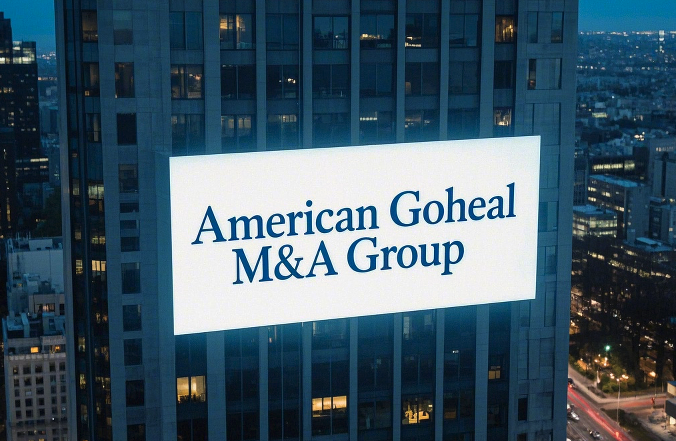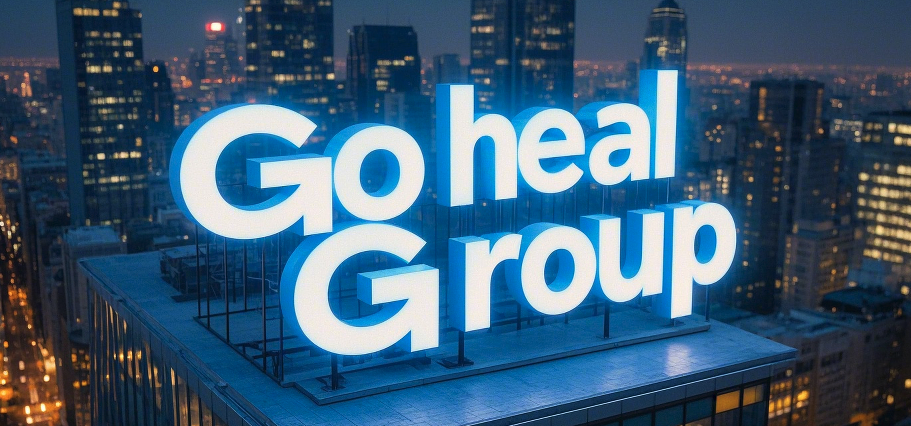"Attacking the city is inferior, attacking the heart is superior." This is how the ancients argued about war, and the same is true for business competition. In the modern capital market, corporate competition is not only reflected in the competition for products and markets, but also in the game of equity structure and control. The key to the acquisition of listed companies is often not how many shares are held, but who really holds the controlling interest. So, what exactly is the controlling interest? How does it affect the decision-making power and shareholder interests of listed companies? Goheal will reveal the mystery for you.
Controlling interest: not just a game of shareholding ratio
In the general perception of investors, controlling interest seems to be directly linked to the shareholding ratio, and it is believed that as long as more than 50% of the shares are held, it means having controlling interest. However, the complexity of the capital market is far beyond imagination. Controlling interest is not just a simple mathematical calculation, but a substantial influence on the company's decision-making.
In theory, when a shareholder holds more than 50% of the shares, he can directly control the composition and major decisions of the company's board of directors. This situation is called absolute control. However, in actual operation, the equity of many companies is highly dispersed, and a single shareholder often cannot easily obtain more than half of the shares. Therefore, even if the shareholding ratio is far less than 50%, it is still possible to achieve control of the company through other means.
For example, in some large listed companies, some shareholders only hold 30%-40% of the shares, but because the equity of other shareholders is relatively dispersed, they can still exert a decisive influence on the company's affairs with a higher proportion of voting rights. This situation is called relative control, which is common in family businesses or listed companies dominated by core shareholders.

American Goheal M&A Group
What's more, some investors who are proficient in capital operation can even control the company's decision-making power through agreement control (VIE structure), board seat arrangement or voting rights delegation when the shareholding ratio is less than 20%. This is called actual control. Such cases are particularly common in high-tech industries and Internet companies. For example, even if the founders of some well-known technology companies do not hold a high proportion of shares, they still firmly control the company through special voting rights arrangements.
The value of controlling rights: the capital logic behind power
Controlling rights not only mean control over the company's operations, but also directly affect the company's development strategy, financial planning and market value. Goheal found that the core goal of many M&A transactions is not simply to acquire company shares, but to obtain controlling rights that can influence decision-making.
First, controlling rights determine the voting rights of major company matters. Whether it is board reorganization, dividend distribution, or strategic transformation, the support of controlling shareholders is required. If a company is quietly acquired by a competitor, the direction of the company's development may change dramatically, and it may even be split or liquidated.
Second, controlling rights directly affect the company's stock price. In the capital market, investors usually pay close attention to the company's controlling rights structure because it determines the company's long-term stability. If a company's controlling shareholder changes frequently, the market may believe that there are problems with corporate governance, resulting in large fluctuations in stock prices. On the contrary, if the controlling rights are stable and controlled by experienced management, the market tends to give a higher valuation.
Finally, controlling rights also mean the right to allocate company resources. In actual operations, controlling shareholders can influence the company's cash flow and asset allocation through related transactions, fund allocation, etc. This is why some capital groups are willing to spend huge sums of money to obtain controlling rights, because it is not only an investment, but also a direct control over corporate resources.
Controlling rights acquisition: a game of interests and risks
In the process of controlling rights acquisition, interests and risks always coexist. For the acquirer, controlling rights mean the initiative to control the company, but how to integrate the new company and avoid internal management conflicts has become the key to the success of the acquisition.
Goheal has studied many cases of controlling rights acquisition and found that successful acquisitions often have the following characteristics:
1. Accurate equity layout: Excellent capital operators are often not eager to acquire all controlling rights at one time, but gradually achieve control over the company through phased acquisitions, agreement control, etc.
2. Reasonable price evaluation: In the M&A market, the controlling rights premium is often high, but if the acquirer overpays the premium, it may cause excessive financial pressure in the future and affect the stability of operations after the acquisition.
3. Robust management integration: In many cases of failed acquisitions, the problem is not the acquisition itself, but the failure of integration after the acquisition. How to balance the power relationship between the original management and the new management, and how to ensure the integration of corporate culture are important issues that the acquirer needs to consider.
Of course, the risks of acquiring controlling rights cannot be ignored. Many investors only discovered after the acquisition of controlling rights that the company's financial situation was worse than expected, or that there was a serious loss of core talents, leading to the failure of the acquisition. In addition, some companies may also face regulatory risks, especially antitrust reviews and industry policy restrictions involved in cross-border mergers and acquisitions, which may affect the ultimate success of the transaction.
Conclusion: Is the acquisition of controlling rights an opportunity or a trap?
In the capital market, the acquisition of controlling rights is a complex power game, which can bring huge returns to investors, but may also hide unknown risks. For investors, understanding the true meaning of controlling rights is far more important than simply paying attention to the shareholding ratio.
So, in your opinion, is the value of controlling rights worth a premium acquisition? What factors are the key to determining the success or failure of a controlling rights transaction? Welcome to share your views in the comment area and discuss the deep logic of capital operation with Goheal!

Goheal Group
[About Goheal] Goheal is a leading investment holding company focusing on global mergers and acquisitions. It has deep roots in the three core business areas of acquisition of controlling rights of listed companies, mergers and acquisitions of listed companies, and capital operations of listed companies. With its profound professional strength and rich experience, it provides companies with full life cycle services from mergers and acquisitions to restructuring and capital operations, aiming to maximize corporate value and achieve long-term benefit growth.